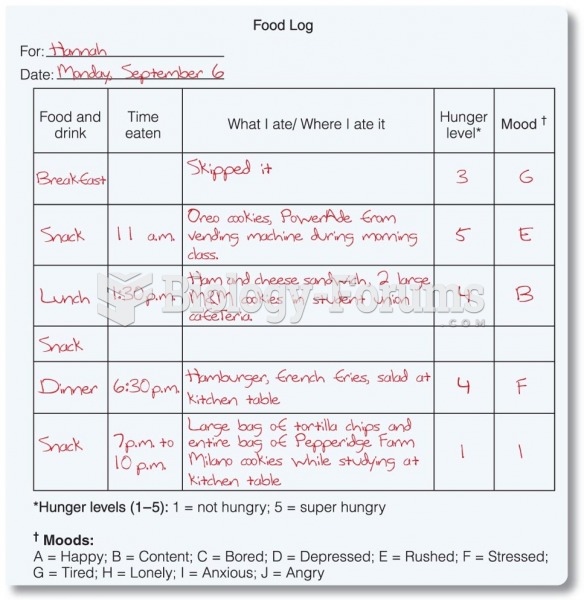|
|
|
Amphetamine poisoning can cause intravascular coagulation, circulatory collapse, rhabdomyolysis, ischemic colitis, acute psychosis, hyperthermia, respiratory distress syndrome, and pericarditis.
Alzheimer's disease affects only about 10% of people older than 65 years of age. Most forms of decreased mental function and dementia are caused by disuse (letting the mind get lazy).
A strange skin disease referred to as Morgellons has occurred in the southern United States and in California. Symptoms include slowly healing sores, joint pain, persistent fatigue, and a sensation of things crawling through the skin. Another symptom is strange-looking, threadlike extrusions coming out of the skin.
There are more sensory neurons in the tongue than in any other part of the body.
In ancient Rome, many of the richer people in the population had lead-induced gout. The reason for this is unclear. Lead poisoning has also been linked to madness.
 Elephants do not fully digest their food. Other animals, such as this Baboon may pick through elepha
Elephants do not fully digest their food. Other animals, such as this Baboon may pick through elepha
 The Red-bearded Bee-eater Nyctyornis amictus is a large species of bee-eater found in the Indo-Malay
The Red-bearded Bee-eater Nyctyornis amictus is a large species of bee-eater found in the Indo-Malay





